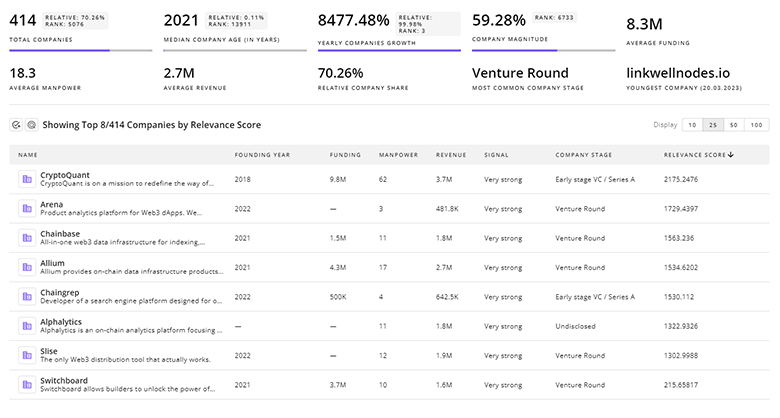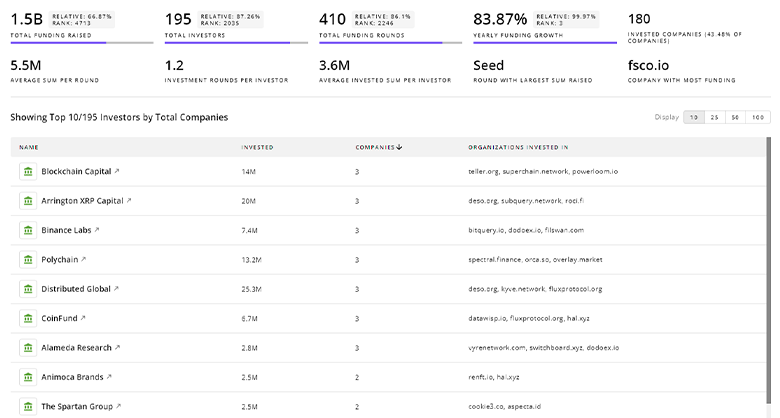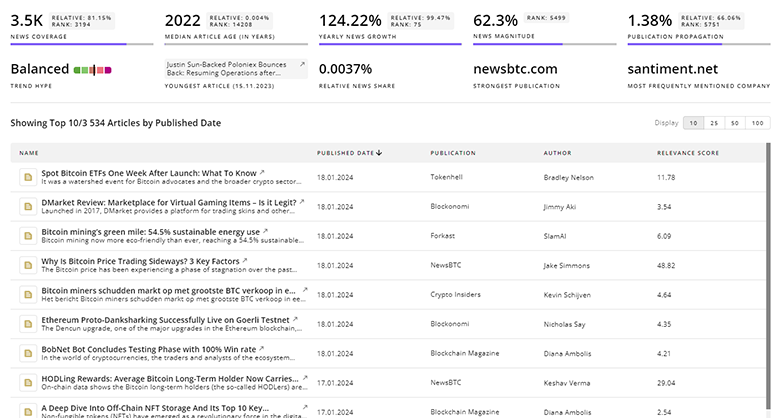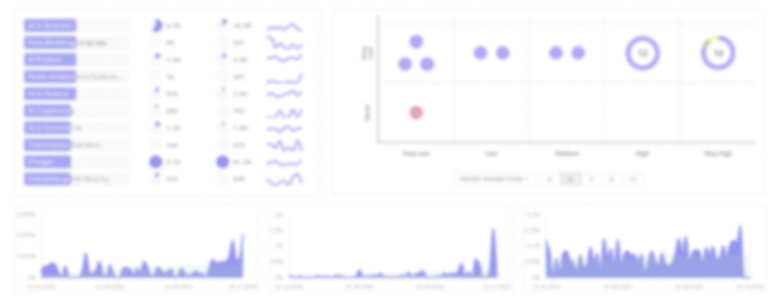
Construction Planning Report
: Analysis on the Market, Trends, and TechnologiesConstruction planning ensures efficient resource management, timely project completion, and adherence to budget constraints. Whether it’s a residential building, a commercial complex, or a large-scale infrastructure project, the planning phase determines the trajectory of the entire endeavor. Despite a decrease in news coverage, construction planning remains integral to the industry, demonstrated by a substantial increase in global search interest. This construction planning report delves into the popularity of the topic, investment trends, and growth potential. We also offer insights into the key activities, emerging trends, and enabling technologies. This offers a comprehensive overview of the processes, strategies, and tools essential for effective construction planning, allowing project managers, engineers, and stakeholders to increase productivity.
We updated this report 612 days ago. Noticed something’s off? Let’s make it right together — reach out!
Topic Dominance Index of Construction Planning
The Topic Dominance Index trendline combines the share of voice distributions of Construction Planning from 3 data sources: published articles, founded companies, and global search
Key Activities and Applications
- Site Analysis & Selection: Includes evaluating factors like location, accessibility, environmental impact, zoning regulations, and availability of utilities.
- Budgeting & Cost Estimation: Developing detailed cost estimates for materials, labor, equipment, permits, and contingencies to ensure that the project stays within financial constraints.
- Resource Allocation: Planning and allocating the necessary resources to avoid delays and wastage.
- Procurement Planning: Developing a procurement strategy for sourcing materials, equipment, and services by selecting suppliers, negotiating contracts, and managing the procurement process to ensure timely delivery.
- Contingency Planning: Identifying alternative actions and resources to keep the project on track in the face of unexpected challenges.
- Permitting and Approvals: To ensure that the project complies with all legal and regulatory requirements.
Emergent Trends and Core Insights
- Green Building Practices: The use of eco-friendly materials, energy-efficient designs, and adherence to green building standards like LEED and BREEAM.
- Modular and Prefabricated Construction: Allow for parts of the construction to be built off-site and then assembled on-site. This leads to faster construction times and reduced costs.
- Lean Construction: Lean principles maximize value and minimize waste by focusing on continuous improvement and efficient workflow management.
- Collaborative Planning Tools: Cloud-based platforms for project management and collaboration enable real-time communication, data sharing, and collaboration among project stakeholders.
- Lifecycle Cost Analysis: There is an increasing emphasis on considering the total lifecycle costs of buildings. This includes maintenance, operation, and eventual decommissioning.
Technologies and Methodologies
- Building Information Modeling (BIM): Digital representations of the physical and functional characteristics of a facility provide a collaborative platform for architects, engineers, and contractors to plan, design, and manage buildings more efficiently.
- Geographic Information Systems (GIS): Used for spatial analysis and mapping to visualize and analyze site conditions, land use, and environmental impacts.
- Drones and Aerial Imaging: Drones are used for site surveys, progress monitoring, and inspection. They provide high-resolution data that allows for more accurate site analysis.
- 3D Laser Scanning: Captures precise 3D measurements to create detailed models for renovation, retrofitting, and construction planning, improving accuracy.
- Cloud Computing: Cloud-based platforms enable real-time collaboration and data sharing among project stakeholders to facilitate communication, document management, and project coordination.
- Advanced Analytics: Allows planners to predict project outcomes, optimize resource use, and identify potential risks based on historical data and real-time information.
Construction Planning Funding
A total of 117 Construction Planning companies have received funding.
Overall, Construction Planning companies have raised $1.4B.
Companies within the Construction Planning domain have secured capital from 213 funding rounds.
The chart shows the funding trendline of Construction Planning companies over the last 5 years
Construction Planning Companies
Gain a better understanding of 2.4K companies that drive Construction Planning, how mature and well-funded these companies are.

2.4K Construction Planning Companies
Discover Construction Planning Companies, their Funding, Manpower, Revenues, Stages, and much more
Construction Planning Investors
Gain insights into 123 Construction Planning investors and investment deals. TrendFeedr’s investors tool presents an overview of investment trends and activities, helping create better investment strategies and partnerships.

123 Construction Planning Investors
Discover Construction Planning Investors, Funding Rounds, Invested Amounts, and Funding Growth
Construction Planning News
Gain a competitive advantage with access to 1.9K Construction Planning articles with TrendFeedr's News feature. The tool offers an extensive database of articles covering recent trends and past events in Construction Planning. This enables innovators and market leaders to make well-informed fact-based decisions.

1.9K Construction Planning News Articles
Discover Latest Construction Planning Articles, News Magnitude, Publication Propagation, Yearly Growth, and Strongest Publications
Executive Summary
The construction planning sector is a vital component of the industry, marked by a stable yet evolving landscape. Key activities focus on strategic planning and efficient resource management, while emergent trends suggest a shift toward digital relevance and sustainable innovation. The diverse range of companies and steady employee growth also indicate a competitive market. With significant funding and investor interest, the sector is well-positioned for future development by leveraging technology and innovative methodologies to enhance construction processes and project delivery.
We seek partnerships with industry experts to deliver actionable insights into trends and tech. Interested? Let us know!








